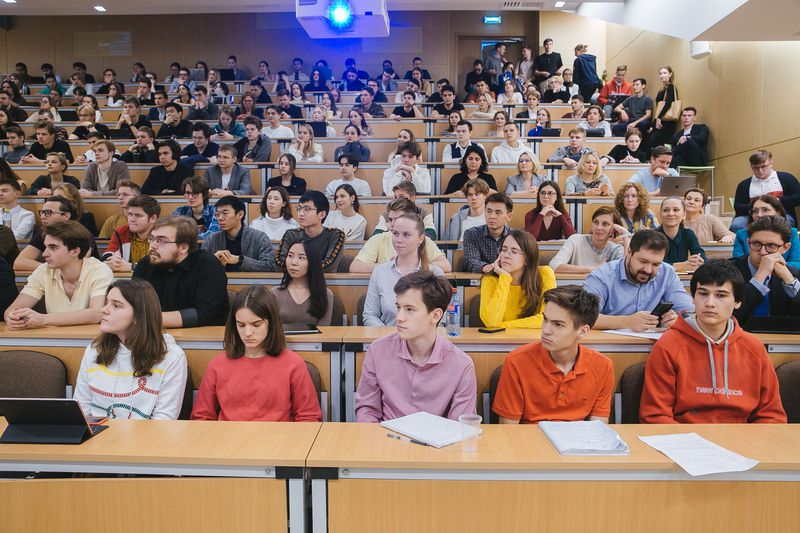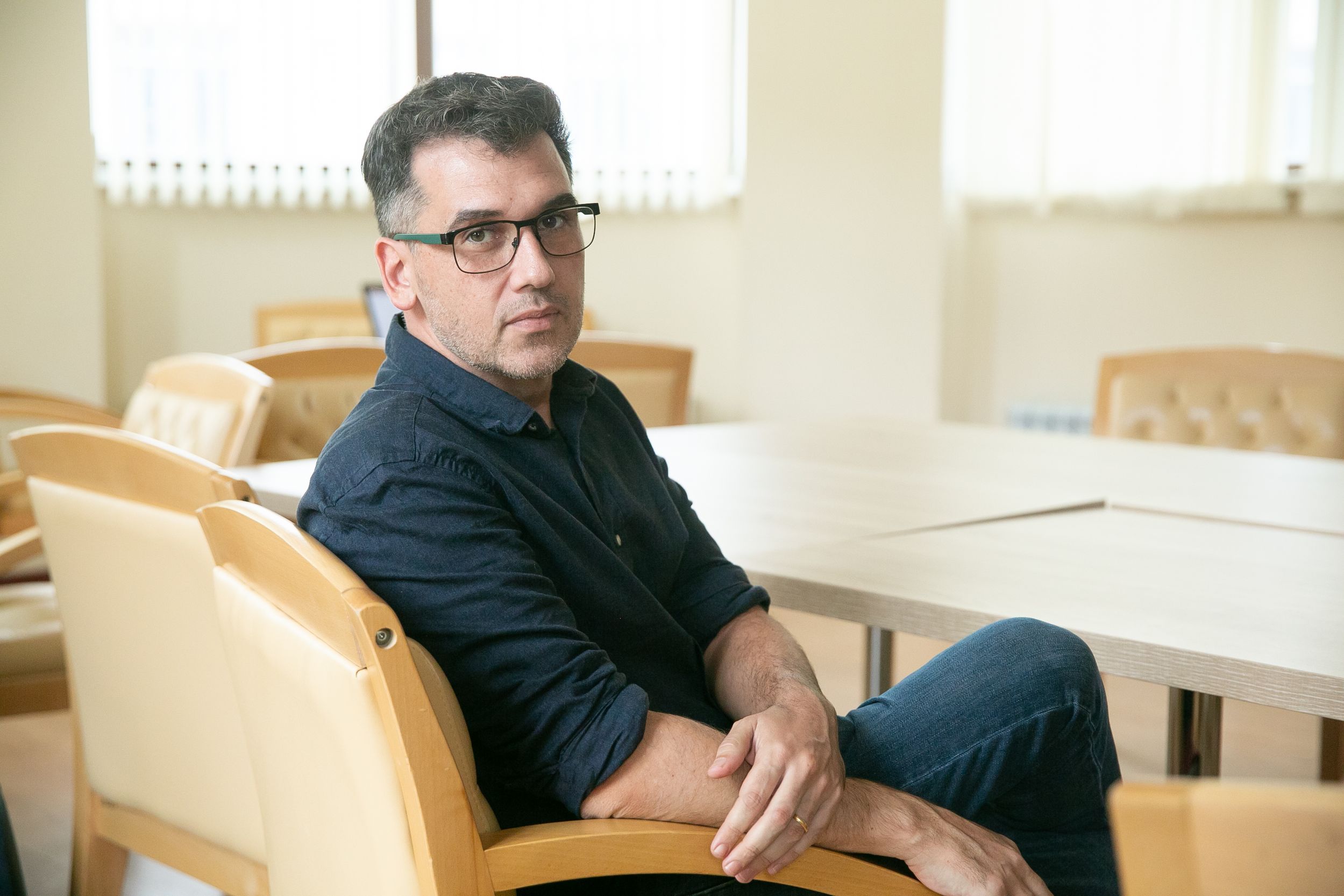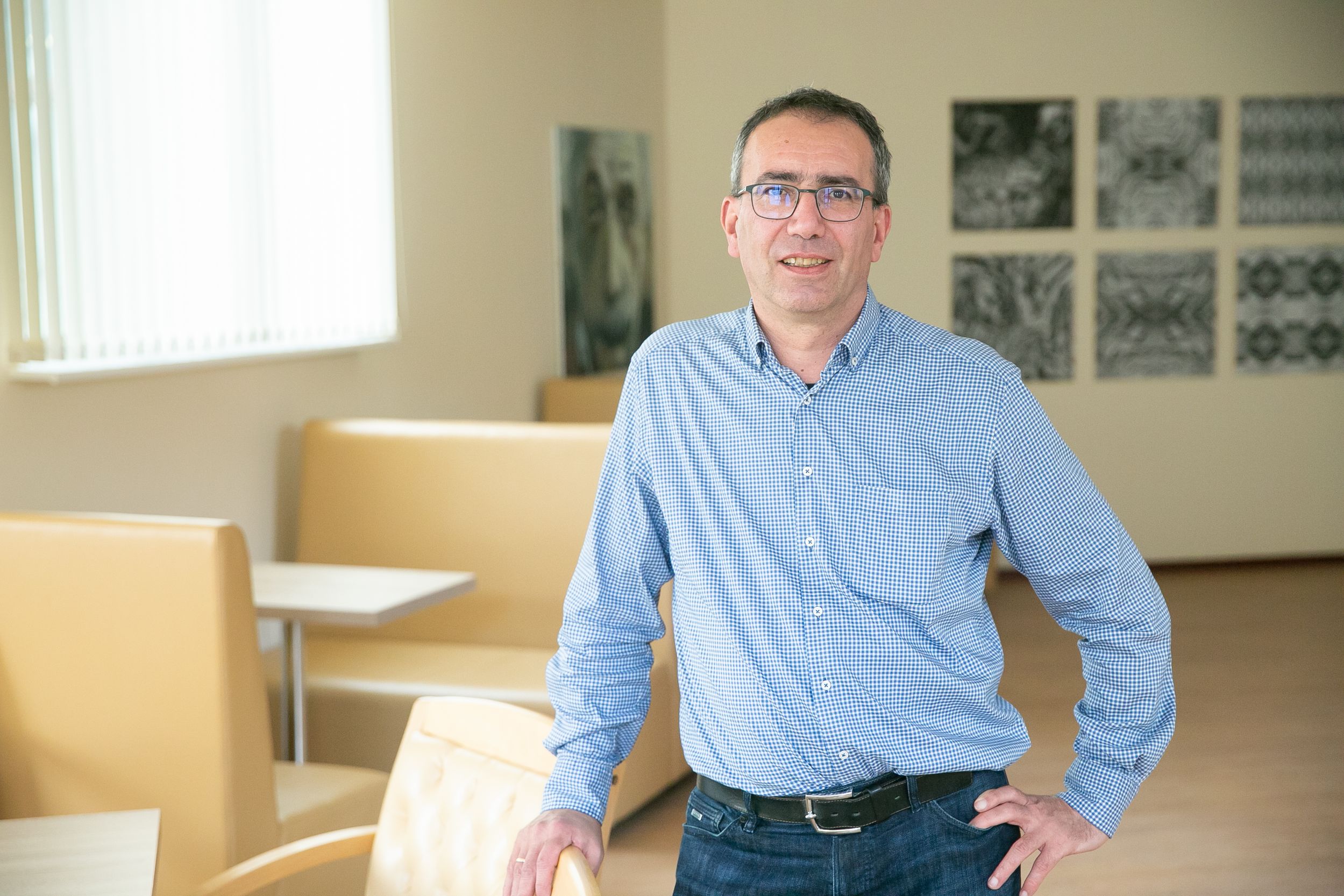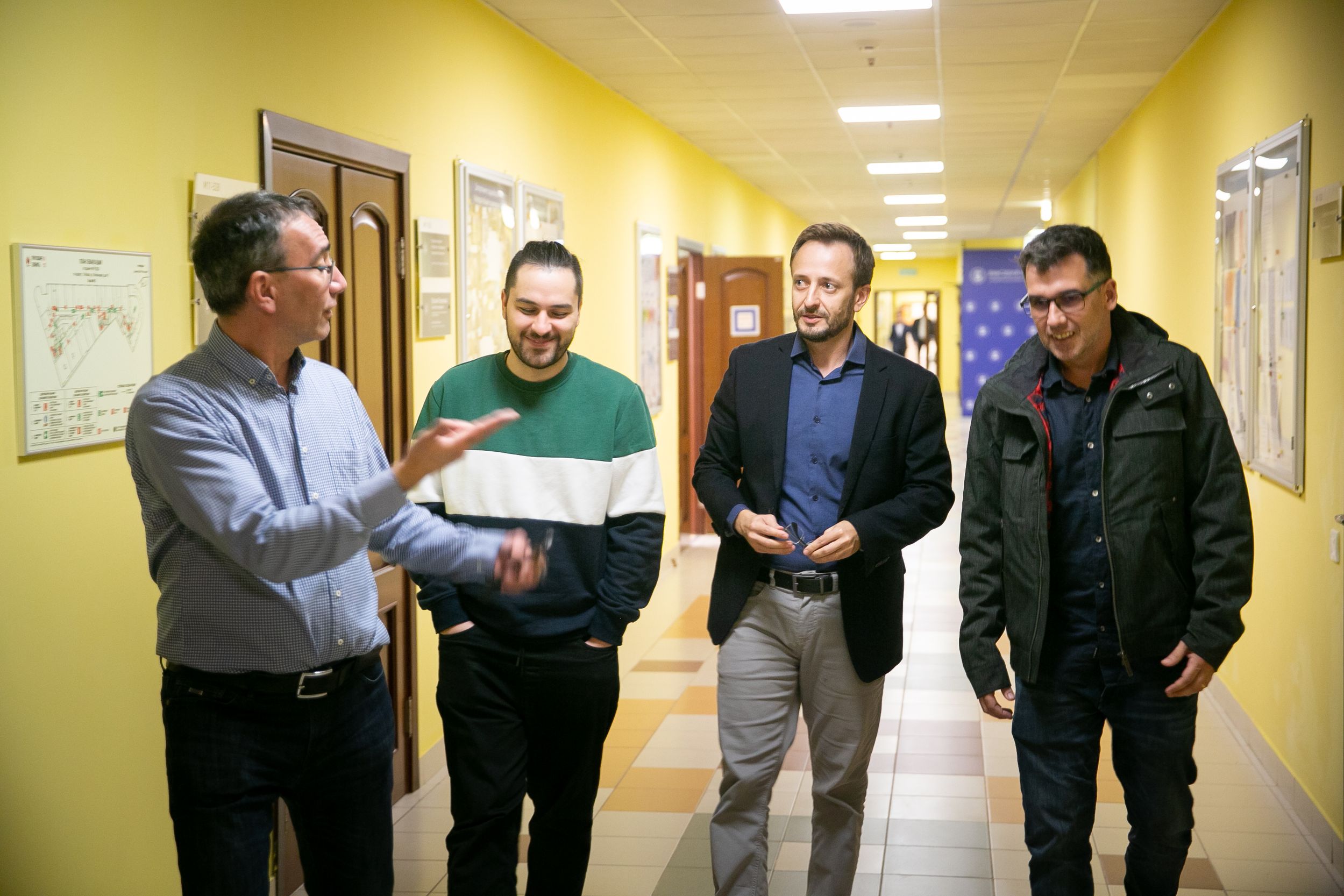‘It Is Essential to Leave Home and Plunge into Deep Water’

The HSE University’s master’s programme in Science, Technology and Innovation Management and Policy is launching a double degree programme with the State University of Campinas (Unicamp), Brazil. Below, Dirk Meissner from HSE University, together with Bruno Fischer and Gustavo Salati from Unicamp, talk about the importance of academic knowledge for non-academic professions, the selection prerequisites for the programme, and the advantages of this type of cooperation for leading national universities.
The State University of Campinas (Unicamp) is ranked first in Brazil according to a recent study by the Brazilian Ministry of Education and second according to THE university ranking. Established in 1962, it initially focused on medicine and engineering, but has since rapidly grown into a comprehensive university. Unicamp is a strong research-oriented university, with almost half of its students being graduate students, which is an unusually high share for the country. Prof. Gustavo Salati is Associate Professor at the School of Applied Sciences of the State University of Campinas and Coordinator at the Graduate Programme in Business Administration. Prof. Bruno Fischer is Associate Professor at the School of Applied Sciences of the State University of Campinas in Business Administration and research collaborator at HSE University. He is Associate Director at the Graduate Programme in Business Administration.
From HSE’s side, the new joint programme is being implemented by the HSE Institute for Statistical Studies and Economics of Knowledge (ISSEK). Prof. Dirk Meissner is Professor at ISSEK, Distinguished Professor, Head of the Laboratory for Economics of Innovation, and Academic Supervisor of the master’s programme ‘Science, Technology and Innovation Management and Policy’.
—How did the cooperation between HSE University and Unicamp start?
Bruno Fischer (BF): It started when I met Dirk Meissner at a conference in Brazil back in 2017, and we started discussing the possibilities for academic cooperation. Three or four months after that, I came to Russia for the first time to take part in the ISSEK annual conference. I saw that HSE University has a good infrastructure, highly qualified people, and access to data. Brazil and Russia have been friendly countries since forever, and we’ve had this strong focus on internationalisation, so I thought it was a good opportunity to establish ties with HSE.

Dirk Meissner (DM): When we met seven years ago, we immediately realised that we have mutual interests and preferences.
BF: And then I taught a course called ‘Strategic Business Partnerships’ for HSE students in 2019/2020, which was online because of the pandemic. In 2021, we started offering it for Unicamp students as well. We changed the content a bit, updated a lot of literature, brought Gustavo Salati along with us to teach the course, and it became a joint course, which is now called ‘Entrepreneurial Ecosystems’.
DM: This is a unique shared course, which means that it involves teachers from HSE University and Unicamp, and is offered to students of both universities. Then we decided to go one step further, join forces, and let students enjoy a real-life experience—to start a joint master’s programme. Russian students can go to the city of Campinas, where it’s never colder than 20˚C, and Brazilian students can come to Russia and see what temperatures below zero feel like.

—Tell me more about the city of Campinas.
Campinas is known as the Silicon Valley of Brazil
BF: It’s a very important technological centre of Brazil and the southern hemisphere. We have the largest particle accelerator in the southern hemisphere, called Sirius. We have a great deal of research infrastructure and the R&D centres of large corporations such as Samsung and Santander Bank. There are federal research units in Campinas that have a close connection with the university in the relevant areas. Campinas is a three-million-inhabitant metropolitan area, and the only metropolitan area outside the Brazilian state capitals. It’s the second-largest city in the state of Sao Paolo, and it’s about a 90-minute drive from the local capital, the city of Sao Paolo.
—Who is eligible for applying to the double degree programme?
DM: Both universities enrol students according to their own rules. And after the first year of studies, we offer our best students the opportunity to enrol in the double degree programme. This programme is limited to five students per year from each university. The applicants should have a strong academic interest, be really motivated students, who’ve demonstrated in the first year of studies that they are keen, engaged and have an academic track record.
HSE students who go to Campinas will represent our university, our reputation. That’s why their best performance is key to us
The selection procedure is rather simple: we ask the applicants to provide a motivational letter, and then we have a panel of three teachers, and we will ask them a bit more about why they want to go there. But be convincing. Do not tell us that you like Brazil or like flying. Do not tell us that the programme is good. We know it. Tell us how you can take advantage of studying in Campinas for your career. Tell us why you need to go to a place where the feeling, the life, the climate, and the mentality is so different from here. We are looking for socially competent students. We do not want to send a student who is in the Brazilian community just sitting in the corner, not engaging with other people.
Russian citizens as well as international students can take part in the programme. It also doesn’t matter whether they are on an scholarship or are paying tuition fees: participation in the joint programme is free of charge. However, they will have to pay for their travel and accommodation expenses.
—How much time will the students spend at the partner university? Is it possible to participate online?
Gustavo Salati (GS): The students must spend at least one semester—six months—at the partner university. The total length of the programme is from 18 to 30 months.

DM: We insist that students travel abroad as part of this programme: you can’t take the partner university’s courses online, while sitting in Moscow at home with your grandparents, since it’s against the spirit of the programme. We believe it is essential to leave home and plunge into deep water.
—What is the language of the programme?
DM: The programme is taught in English. You won’t need any command of Russian and/or Portuguese to study.
GS: We have some Portuguese courses that students can do if they want, but these are not mandatory.
—Is the programme more practice-oriented or research-oriented?
DM: It is focused on research, it is an academic programme, but I need to emphasise that there is a common misunderstanding here. If you are focusing on practice, it is primary school level: here is a problem, find a solution. Finding a solution is simple. But what makes us different as a university is that we say: find a problem, describe the problem, and only then find the solution. The graduates should be capable of finding a problem and then solving it. And this approach is much more practice-oriented than finding typical solutions for typical problems.
BF: This is a cultural challenge that I know Russia faces, and it is the same in Brazil—it’s the distinction between practice and research. We see them as separate things.
At the end of the day, our graduate is going to be a person who is not only capable of solving a problem, but of identifying new problems. And that’s what innovation is based on
Our graduates can stay in academia if they want, of course.

—What about the other career opportunities, besides academia?
BF: The graduates can start their own companies, go work for other companies, or for governments. I am an academic, and I work government institutions, as well as with Samsung. It is important for students to know that even though this is a research-based programme, it does not prevent them from using this in their careers, in the market. It is definitely not a limitation—on the contrary, it expands their possibilities.
DM: If you look at our alumni, they go on to all sorts of careers. This is the generation who can design the future of a company, of a country, and so on. They are not the guys who are sitting there and waiting to be told what to do. They know how to find an opportunity.
—What will the graduation project look like?
DM: It will be a master’s thesis with two defence procedures, at HSE University and Unicamp. Then they get a Unicamp diploma and an HSE diploma, eg two degrees, issued by each university independently.
—Why are such joint programmes important for universities in Russia and Brazil?
DM: It keeps us alive, it gives us fresh blood. It gives us a chance to look at what we are doing across the Atlantic.
If we want to be recognised beyond Russia’s borders, we have to be convincing. This is a good way for us to think about whether we are on the right path or not

We have to revise and fine-tune our curriculum and delivery. Our Rector has said that we are a leading international university: we are following standards and setting standards. We have a number of collaboration partners, and we check our programmes mutually. We have to have evidence that the standard we deliver in our programme is recognised not only in Moscow, but also in other countries. And with the University of Campinas, we are talking about one of the best universities in Brazil.
BF: Large countries, such as Brazil and Russia, usually are very inward-looking. I know Russia is like this, you care a lot about what is going on within your country, and Brazil does the same. So, internationalisation for us is essential. It is different from a small nation, a European nation, from which it is easy to drive to a different country and come back after work. For us everything is really far, as it is for you. This is not something that comes naturally.
And on top of that, when we think about the impact that internationalisation has on scientific research—and this is confirmed in a research project that I co-authored—countries such as Brazil and Russia benefit a lot from international collaboration. And we are trying to build a stronger programme, research-wise.
And from the student side, it is a very important experience for them to develop not only as researchers, but also as human beings, to go and find out about another culture, how they carry out research here, how they live in Moscow. And the same is true for foreign students who come to Brazil and try to understand, to develop their social competencies and knowledge of how the world works.
See also:
HSE ICEF and China’s SWUFE RIEM Launch Double Master’s Degree
In January 2025, HSE University entered into a cooperation agreement with the Southwestern University of Finance and Economics (SWUFE) to implement a double master’s that joins ICEF’s Financial Economics programme with SWUFE’s Master's in Finance. Combining the best of China and Russia’s academic frameworks, this new degree offers a unique study-abroad experience. In this collaboration, HSE ICEF is partnering with the Research Institute of Economics and Management (RIEM), which was established at SWUFE in 2006 to facilitate top-level, international research and training in economics and finance.
New Opportunities: ICEF Hosts China’s SWUFE Delegation
On May 22, ICEF HSE hosted a delegation from the Southwestern University of Finance and Economics’ Research Institute of Economics and Management (RIEM SWUFE) in Chengdu, China, led by RIEM Executive Dean Professor Dong Yan. The parties exchanged signed copies of a cooperation agreement for the joint delivery of a Double-Degree Bachelor Programme in Economics and Finance. They also discussed future prospects for cooperation in areas such as a joint Master’s programme, student and faculty exchange, summer schools, and joint research projects.
Students of HSE and SFedU Double Degree Programme Visit Their Second Alma Mater
Since 2022, HSE University and the Southern Federal University (SFedU) have been implementing a joint bachelor's programme ‘The Caucasus and the Middle East in the System of Regional and International Relations.’ Education takes place in Rostov-on-Don, with HSE professors mostly involved in the process remotely. In late April 2024, some of the top students from the programme were invited for a week to HSE University, where they participated in various educational and scientific events.
ICEF HSE Launches Double Degree Programme with Chinese Partner RIEM SWUFE
HSE University and Southwestern University of Finance and Economics (SWUFE) have signed a cooperation agreement to offer a Bachelor's double degree programme in Economics and Finance. The participating partners are the International Institute of Economics and Finance (ICEF) at HSE University and the Research Institute of Economics and Management (RIEM) at SWUFE.
Students of the HSE Campus in Perm Return from the University of Essex
The first students of the double-degree programme held by the HSE Perm and the University of Essex have completed the U.K. based part of their course.
An Excellent Opportunity to Study, Work and Live
Claire Lucien, a student from France, graduated from the HSE in 2011. She is an alumna of the double degree Master’s programme ‘International Relations in Eurasia’, a joint project with the University of Kent. Today she works as an analyst in export finance at BNP Paribas in Moscow.
Want to Become a Master in European Business? Apply Now!
The application process for September 2013 is now open for the double diploma ‘Master in European Business’ at ESCP Europe and the International Institute of Administration and Business at HSE.
Two Brands, Two Countries and Two Diplomas
The HSE International Institute of Administration and Business (IIAB) is launching a new year-long Masters in European Business programme which is open for graduates of the HSE as well as other Russian and international graduates. Irina Maltseva, Director of the IIAB, told us about the programme’s details, advantages and the application procedure.


